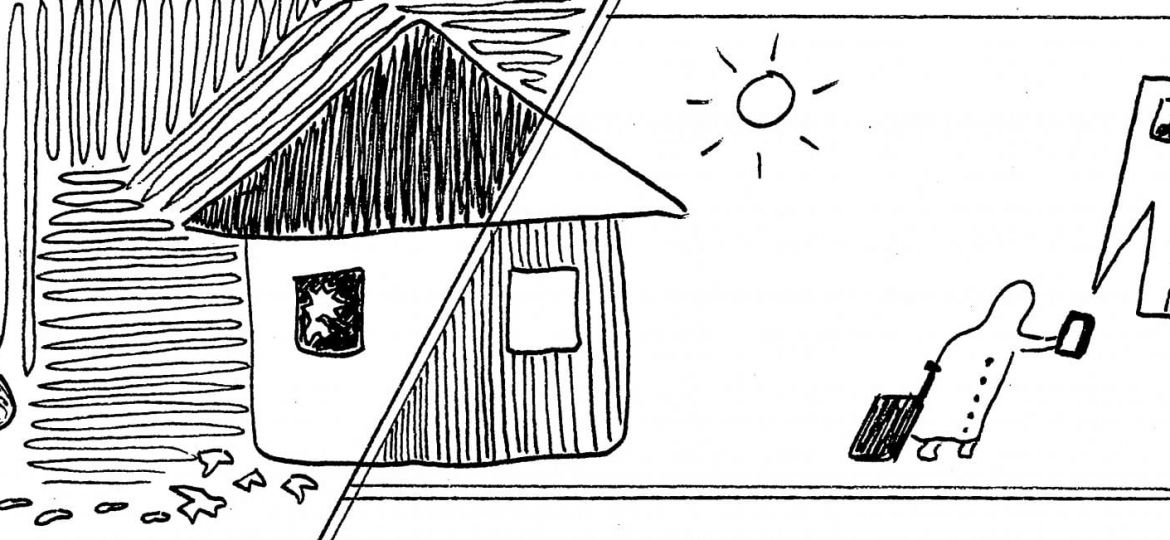
Being a product of the Internet generation, it’s just as deeply ingrained in me to practice cybersafety as it is to practice physical safety – while I learned to always buckle my seatbelt when riding in a car, I also learned not to go online without the permission of a trusted adult. While I was being instructed not to go out alone after dark, I was also told not to give out sensitive information – like a Social Security number or home address – to anyone else online. These lessons, while still relevant and critical to keeping my guard up on the web, are not enough to keep me secure anymore.
Every time I download a new app, a push notification asks me if I’d like to allow its developers to have access to my location. Businesses have offered discounts or cash back if I “check in” online, alerting my friends and followers to my presence in the shop or restaurant I’m perusing. If I travel out of town and don’t share pictures on Instagram and Facebook – well, did I even take the trip at all? I can only imagine what my mother circa 2005 would say if she had known that just over a decade later, anyone who follows me on Snapchat would be able to follow a cartoon version of myself around on a map, keeping up with every move I make.
Authorities say celebrities are leaving a trail of breadcrumbs each time they post online about flying across the world for premieres, signature events and fashion shows, essentially telling potential thieves when their estates will be sitting empty. Similarly, the police have pointed to celebrities’ posts about designer clothes, expensive jewelry and luxury cars as “egging on” thieves.
Megastar Kim Kardashian was robbed at gunpoint in her Paris hotel room in 2016, a traumatic event which led to increased security and even some very serious mental and emotional ramifications for her in the aftermath. But she isn’t alone – Rihanna, Nicki Minaj, Hillary Duff, and John Mayer are among the other celebs whose homes have been burglarized in the two years since Kim was targeted.
In the days following Kim Kardashian’s robbery – and, yes, even now – the comments sections were flooded with folks saying that she “brought this on herself” by posting photos of her luxurious life and that “she should have known better” than to show off her wealth. This is absolutely victim-blaming and, frankly, it’s nonsensical. I’ve seen old photographs of film stars like Elizabeth Taylor or Marilyn Monroe dripping in diamonds and fur coats from before color photography had even been invented.
The public eye has always been fixed on Hollywood and us regular folk have always adored the glitz and glam of celebrity life – Kim Kardashian was not the first, nor will she be the last, to partake in that spectacle. To affix the blame of her physically violent, terrifying armed robbery to the way she showcases her wealth is rather ignorant and perhaps even misogynistic – I don’t recall seeing much criticism of P. Diddy or Orlando Bloom when robbers targeted their mansions, though they publicly wear designer clothes and take luxurious vacations as well.
While I do understand that more and more people – many who are famous, many who are not – are being targeted and burglarized because they’ve shared their locations online, I think it is a bit of an oversimplification to pin these crimes on celebrities who post about events they attend in other parts of the world.
As in other types of crime, we mustn’t rush to explain how the victim could have prevented the attack. I do think an appropriate compromise would be, perhaps, to have the staff who typically handle celebrities’ social media accounts post about events after they have returned home again.
It is not social media itself that leads to this increase in thievery, in my opinion, but the up-to-the-minute updates that perhaps take it too far. It’s not that celebrities didn’t travel around the world before the social media boom of the late 2000’s – the photos from these ventures were simply published days or even weeks after they took place.
The instantaneous nature of modern media is what allows for these types breaches in security. So, by all means, post those vacation photos and tell all your friends how much you loved that concert you went to on Saturday night – but, in the interest of safety, maybe waiting until after you get back home.
Alexa Johanningmeier ’21 (johann2@stolaf.edu) is from Florissant, Mo. Her major is undeclared

